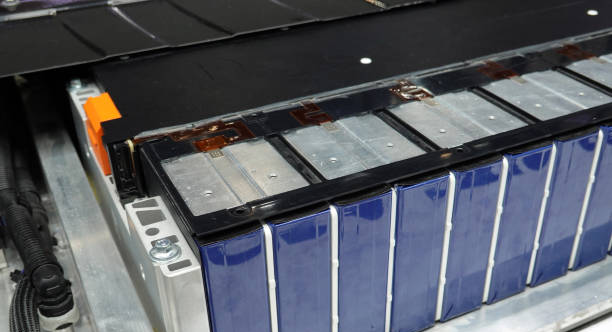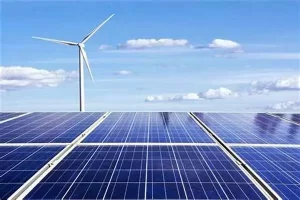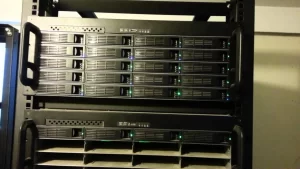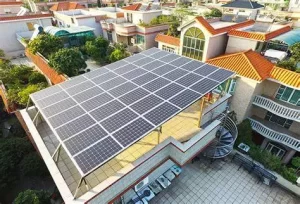Hybrid Inverter Battery: Driving the Future Power Source
In today’s era of sustainable development and efficient energy utilization, hybrid inverter battery technology is emerging as a key player in the energy sector. It not only brings higher energy efficiency and lower emissions to transportation but also plays a crucial role in the storage and utilization of renewable energy.
Development Journey of Hybrid Inverter Battery
The development of hybrid inverter battery can be traced back to the late 20th century. Early hybrid systems primarily utilized nickel-metal hydride batteries, but their relatively low energy density limited vehicle range and performance.
With the continuous advancement of lithium-ion battery technology, it has gradually become the mainstream choice for hybrid inverter batteries. Lithium-ion batteries offer higher energy density, longer cycle life, and faster charging and discharging rates, enabling hybrid vehicles to travel longer distances in electric mode and improving overall fuel economy.

During this development process, battery management systems have also seen significant improvements. From simple voltage and current monitoring initially, they now can precisely control the status of each battery cell, achieving balanced charging and discharging and effectively extending battery life.
Furthermore, inverter technology has continuously upgraded, improving conversion efficiency, reducing size, and weight, thereby providing better conditions for integrating and optimizing hybrid systems.
Advantages of Hybrid Inverter Battery in Practical Applications
- Improved Fuel Efficiency: Hybrid inverter batteries allow vehicles to intelligently switch between different operating modes. In congested urban conditions, vehicles can rely on battery power to avoid inefficient operation of the internal combustion engine, significantly reducing fuel consumption. When high-speed driving or high-power output is required, the internal combustion engine and electric motor work together to achieve optimal power distribution. This flexible power combination greatly enhances fuel efficiency, reducing energy waste. For example, hybrid models like the Toyota Prius can improve fuel efficiency by 30% to 50% compared to traditional gasoline vehicles.
- Reduced Emissions: With reduced operating time of the internal combustion engine in hybrid systems and its ability to operate more efficiently, harmful emissions such as carbon monoxide, nitrogen oxides, and particulate matter are significantly reduced. This is crucial for improving urban air quality and reducing environmental pollution.
- Energy Recovery: During braking and deceleration, the electric motor can act as a generator, converting the vehicle’s kinetic energy into electricity and storing it in the battery. This energy recovery mechanism not only reduces energy waste but also extends the vehicle’s range. Statistics show that energy recovery can increase the vehicle’s range by 10% to 20% in city driving conditions.
- Noise Reduction: Operating in electric mode results in virtually silent vehicle operation, providing a quieter and more comfortable driving environment for passengers. This reduction in vehicle noise is particularly beneficial in urban areas for improving residents’ quality of life.
- Enhanced Power Performance: The instantaneous torque output characteristics of the electric motor enable hybrid vehicles to respond quickly during startup and acceleration, providing strong power. Collaborating with the internal combustion engine can achieve superior overall power performance, enhancing the driving experience.
- Less Dependence on Infrastructure: Compared to pure electric vehicles, hybrid vehicles have less dependency on charging infrastructure. Even in areas with inadequate charging facilities, they can rely on the internal combustion engine to ensure normal vehicle operation, thereby alleviating user range anxiety to some extent.
- Adaptability to Various Conditions: Hybrid inverter batteries can adapt to various driving conditions, whether it’s frequent stop-and-go city traffic or long-distance highway driving, effectively leveraging their advantages to provide stable and reliable power output.
- Cost Reduction: Continued maturity and mass production of battery technology are expected to lower battery costs, making hybrid vehicles more price competitive.
- Energy Density Enhancement: Development of new battery materials and structures will increase battery energy density, further enhancing pure electric range and overall performance.
- Intelligent Management: Through more advanced battery management systems and vehicle control systems, achieving more precise and intelligent management of batteries and the entire power system will optimize performance and extend service life.
- Integration with Renewable Energy: Hybrid inverter batteries can be combined with renewable energy sources such as solar and wind energy, serving as distributed energy storage systems to provide stable power supply for homes and communities.
Practical Application Cases
Taking Toyota’s hybrid technology as an example, its integration of efficient internal combustion engines, high-performance electric motors, and advanced inverter battery systems has led to a range of bestselling hybrid models such as the Camry Hybrid and Corolla Hybrid. These models have gained wide recognition globally, not only for their excellent fuel economy and environmental performance but also for maintaining good reliability and durability.
Another example is BYD’s DM-i Super Hybrid technology, which achieves ultra-low fuel consumption and extended range through large-capacity power-type blade batteries and efficient hybrid-specific engines. Its models have achieved significant sales success in the market, offering consumers more green travel choices.
Challenges and Future Outlook
Despite the numerous advantages of hybrid inverter batteries in practical applications, they still face challenges. For instance, battery costs remain relatively high, limiting the widespread adoption of hybrid vehicles to some extent. Additionally, battery recycling and reuse are also issues that need to be addressed to achieve sustainability goals.
However, with ongoing technological advancements, we have reason to believe that these issues will gradually be resolved. Looking ahead, hybrid inverter batteries are expected to make further progress in the following areas:
In conclusion, hybrid inverter batteries have demonstrated significant advantages in practical applications, with their development witnessing continuous technological innovation and breakthroughs. Despite facing some challenges, with technological progress and market demand driving them forward, hybrid inverter batteries are expected to play a more important role in the future energy sector, creating a greener, more efficient, and sustainable travel and energy environment.
Let’s look forward to the continued brilliance of hybrid inverter battery technology in the future, contributing more to humanity’s sustainable development goals.
Contact us
- Email:[email protected]
- Tel: +86 13651638099
- Address: 333 Fengcun Road, Fengxian District, Shanghai
Get A Quote Now!

Read more

Unveiling Photovoltaic+Energy Storage: Four Major Application Scenarios Leading the Future of Energy
In this way, the energy landscape is evolving, and one of the most thrilling developments in renewables is the integration of photovoltaics energy storage.

From Theory to Practice: Four Methods for Estimating Photovoltaic Power Generation
Photovoltaic power generation has become an essential part of modern energy solutions, particularly in home solar systems and distributed power applications

Rack-Mounted Lithium Iron Batteries: Creating Efficient and Reliable Energy Storage Solutions
When it comes to modern energy solutions, rack-mounted lithium iron batteries are taking center stage in a variety of industries. Whether you’re powering data centers, stabilizing energy for households, or keeping critical systems online at 5G base stations, these batteries have become the unsung heroes of our electrified world.

Late Night Energy Saving Tips: How to Maximize Electricity Savings During Off-Peak Hours
With rising energy costs, homeowners are increasingly exploring innovative ways to save on their electricity bills. One effective approach is utilizing off-peak hours—times when electricity rates are significantly lower due to reduced demand.
